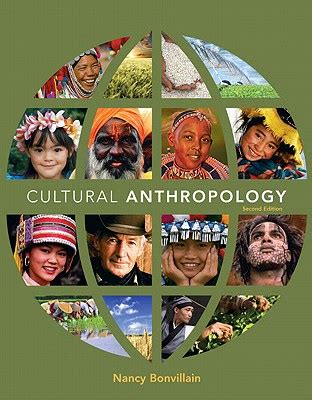Embark on an Adventure into Human Societies
Cultural anthropology, the study of human cultures and societies, offers a captivating path for those seeking to explore the complexities of human existence. Graduates of cultural anthropology programs become cultural explorers, delving into diverse communities to unravel the intricate tapestry of human behavior, beliefs, and values.

Career Opportunities for the Curious and Passionate
The field of cultural anthropology provides a wide range of career opportunities, catering to individuals with a keen interest in human behavior and societal dynamics. Here are some of the most sought-after roles:
-
Cultural Anthropologists: Conduct research, analyze data, and publish findings on various aspects of human cultures.
-
Museum Curators: Manage and interpret cultural artifacts, preserving and showcasing the cultural heritage of communities and civilizations.
-
Nonprofit Program Directors: Lead and implement programs aimed at promoting cultural understanding, diversity, and equity.
-
International Development Consultants: Provide expertise in cultural and social issues to international organizations and governments.
-
Cultural Heritage Specialists: Work to protect and preserve cultural heritage sites, customs, and traditions.
Salary Expectations and Job Outlook
According to the U.S. Bureau of Labor Statistics, cultural anthropologists earned a median annual salary of $70,750 in May 2022. The top 10% of earners made over $129,680, while the bottom 10% earned less than $33,060.
The job outlook for cultural anthropologists is projected to grow 8% from 2022 to 2032, faster than the average for all occupations. Increased globalization and intercultural communication have created a greater need for professionals who can bridge cultural divides and facilitate understanding.
Essential Skills for Cultural Anthropologists
To excel in cultural anthropology careers, individuals should possess the following skills:
-
Observation and Analysis: Keen observation skills and the ability to analyze data from various sources.
-
Cultural Sensitivity: Deep respect and appreciation for diverse cultures, customs, and beliefs.
-
Communication Skills: Excellent written and verbal communication abilities to convey complex ideas clearly.
-
Research Skills: Proficiency in conducting research, collecting data, and synthesizing findings.
-
Intercultural Competence: Ability to navigate and interact effectively in various cultural contexts.
Forging a Career Path in Cultural Anthropology
Aspiring cultural anthropologists typically earn a bachelor’s degree in anthropology or a related field. They may then pursue a graduate degree (master’s or doctorate) to specialize in a particular area of interest.
Experiential learning through field research and internships is essential for developing practical skills and gaining deep immersion into different cultures. Networking with professionals in the field, attending academic conferences, and engaging in professional development opportunities can further enhance career prospects.
Emerging Applications for Cultural Anthropology
Cultural anthropology is not just limited to academic research. Its insights can be applied to a wide range of fields, including:
-
Healthcare: Understanding cultural influences on health behaviors and improving patient-clinician communication.
-
Business: Navigating cross-cultural differences in consumer behavior, marketing strategies, and workplace dynamics.
-
Education: Developing culturally inclusive curricula and promoting cultural literacy in schools.
-
Conflict Resolution: Facilitating dialogue and mediation between groups with different cultural perspectives.
-
Environmental Conservation: Studying indigenous knowledge and resource management practices to inform conservation efforts.
Charting Your Own Path: A Creative Word for Innovation
The field of cultural anthropology provides ample opportunities for creative thinking and developing innovative applications of anthropological knowledge. One word that captures this innovative spirit is “ethnovisionary.”
Ethnovisionaries use cultural anthropology insights to envision new solutions to challenges and forge novel connections between different worlds. They may develop educational programs that blend traditional knowledge with modern technology or create cross-cultural exchange programs that foster empathy and understanding.
Tables for Career Exploration
Table 1: Common Career Paths in Cultural Anthropology
| Role | Description |
|---|---|
| Cultural Anthropologist | Conducts research, publishes findings, and teaches in academic institutions |
| Museum Curator | Manages and interprets cultural artifacts and exhibits |
| Nonprofit Program Director | Leads and implements programs promoting cultural understanding and equity |
| International Development Consultant | Provides expertise to international organizations and governments on cultural and social issues |
| Cultural Heritage Specialist | Works to protect and preserve cultural heritage sites and practices |
Table 2: Salary Expectations for Cultural Anthropologists
| Percentile | Annual Salary |
|---|---|
| 10% | $129,680+ |
| 50% (Median) | $70,750 |
| 90% | $33,060 or less |
Table 3: Essential Skills for Cultural Anthropologists
| Skill | Description |
|---|---|
| Observation and Analysis | Keen observation skills and ability to analyze data from various sources |
| Cultural Sensitivity | Deep respect and appreciation for diverse cultures, customs, and beliefs |
| Communication Skills | Excellent written and verbal communication abilities to convey complex ideas clearly |
| Research Skills | Proficiency in conducting research, collecting data, and synthesizing findings |
| Intercultural Competence | Ability to navigate and interact effectively in various cultural contexts |
Table 4: Emerging Applications of Cultural Anthropology
| Field | Application |
|---|---|
| Healthcare | Understanding cultural influences on health behaviors and improving patient-clinician communication |
| Business | Navigating cross-cultural differences in consumer behavior, marketing strategies, and workplace dynamics |
| Education | Developing culturally inclusive curricula and promoting cultural literacy in schools |
| Conflict Resolution | Facilitating dialogue and mediation between groups with different cultural perspectives |
| Environmental Conservation | Studying indigenous knowledge and resource management practices to inform conservation efforts |
